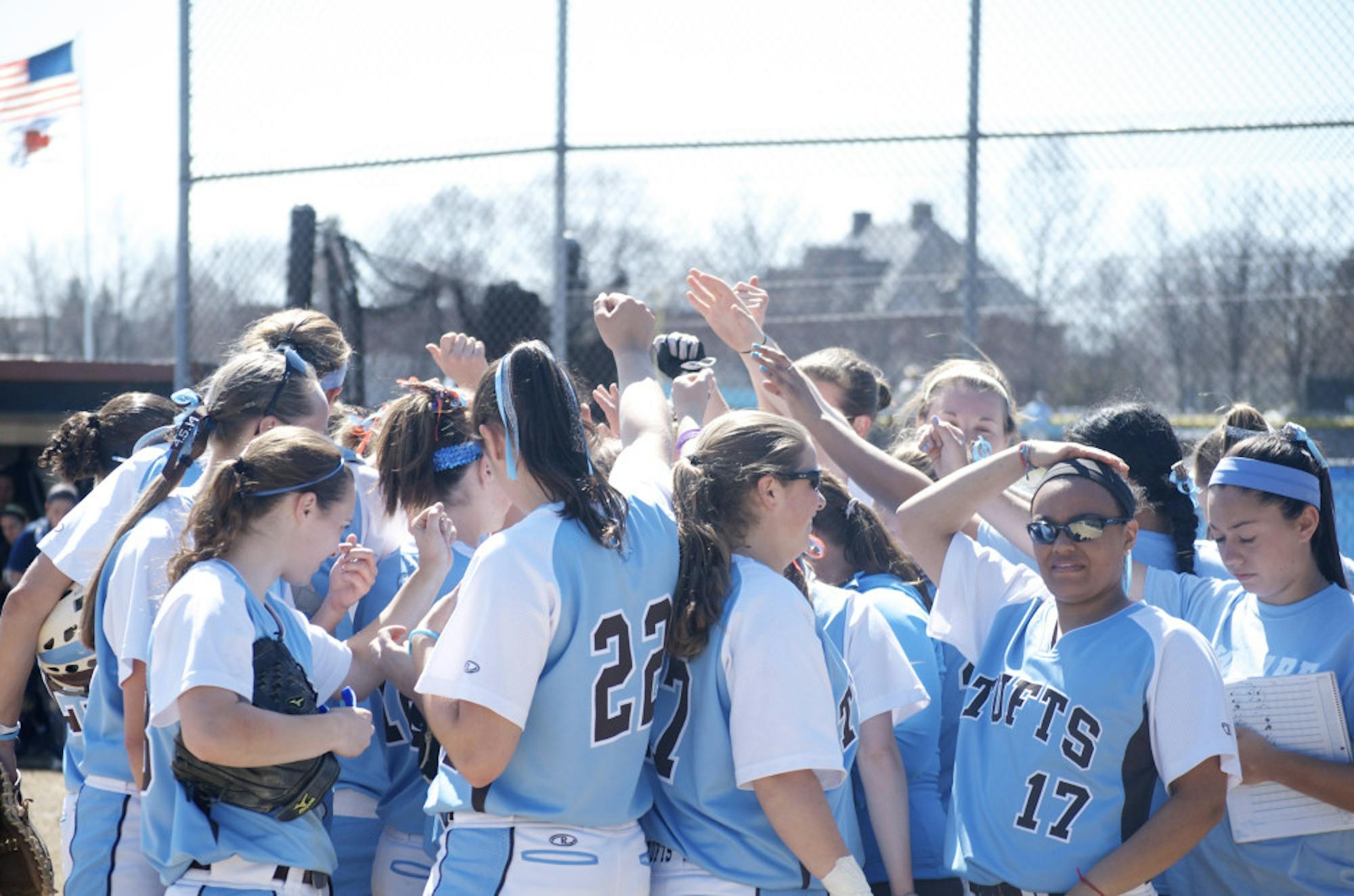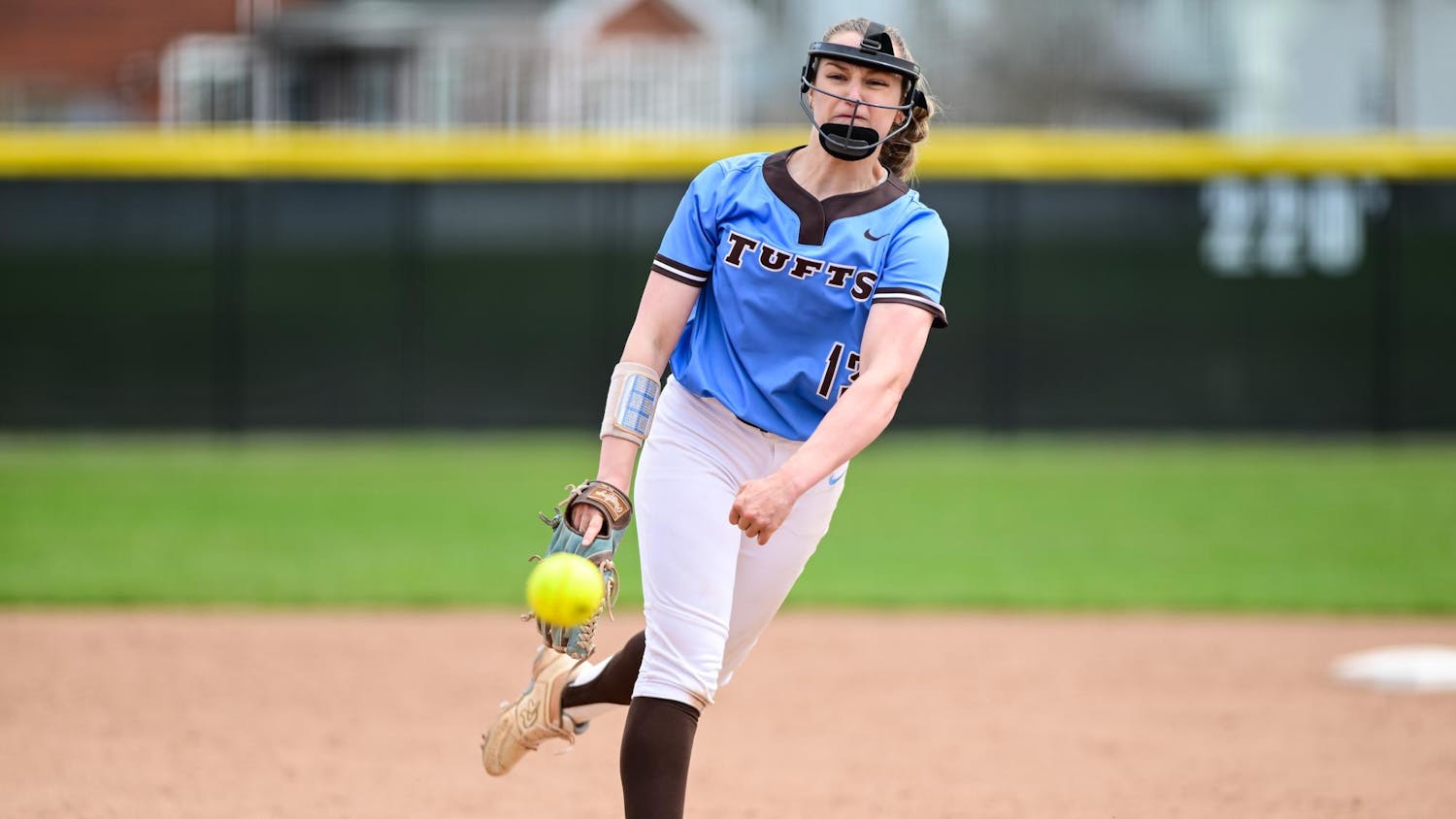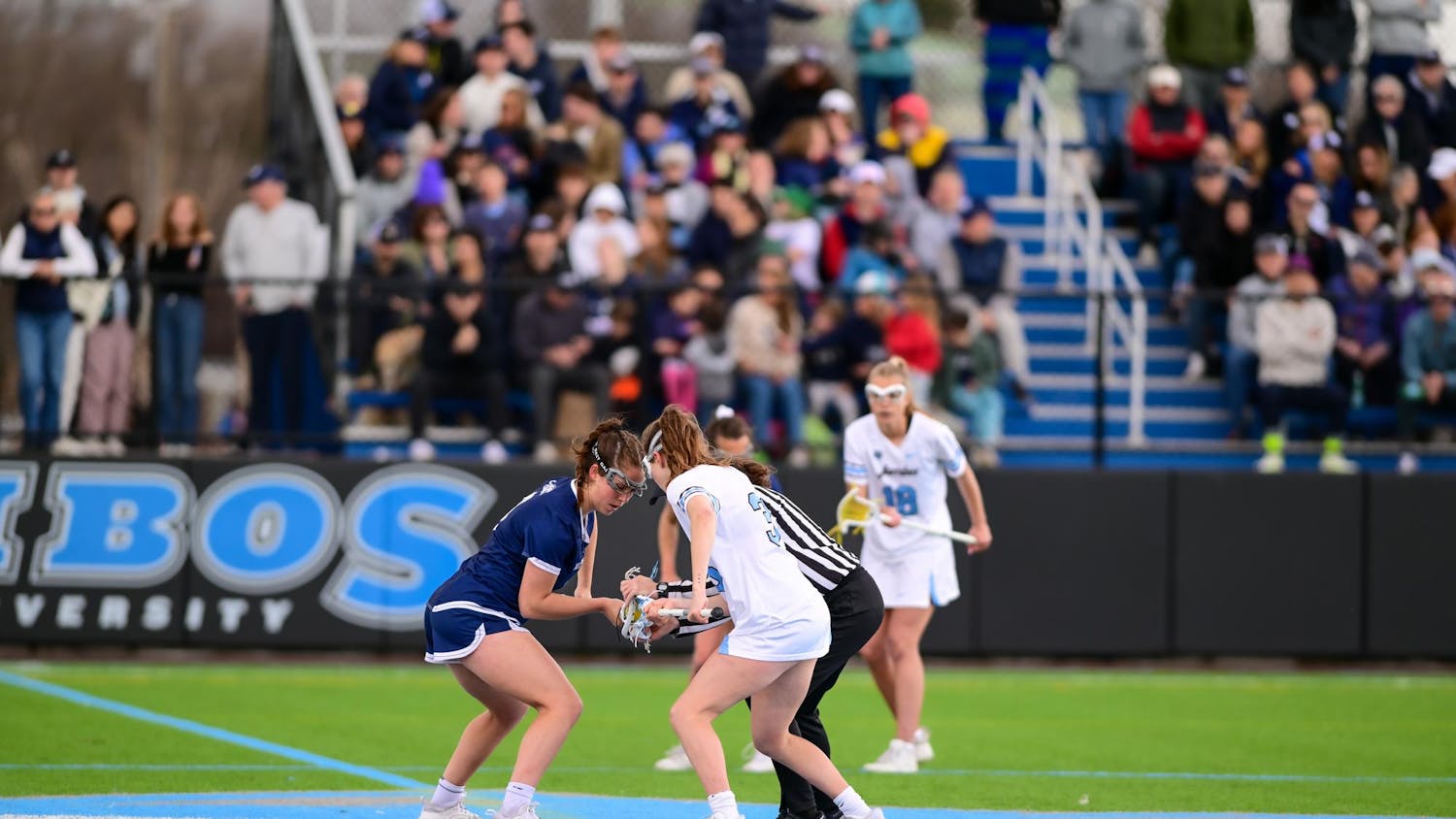Cheryl Milligan’s first softball coach, despite not teaching her much about the game at the tender age of seven, kick-started her interest in softball — a game that would eventually become a life-long passion.
“My coach when I was a kid was just a lot of fun,” Milligan said. “He didn’t know anything about softball, but he was a lot of fun. I just fell in love with [softball]. I was that kid that everyone complains about now, [the one] that specializes too early and [doesn’t] do other things, but I really didn’t want to do anything else.”
Milligan was a gymnast and a softball player until high school, when she switched from gymnastics to diving.
“I quickly decided that diving practice wasn’t nearly as much fun as softball practice, so I started doing softball year-round. For me, it was where I wanted to be.”
But Milligan didn’t lose speed, switching from being a two-sport athlete to being a softball player, essentially full-time.
“I would go to my practices, and play for two or three teams in the summer, had two or three practices in a day after school during the spring and then go to my brother’s baseball practice afterward to shank balls,” Milligan said. “I just loved always being on the field – ball in my hand, hand in my glove.”
Growing up, Milligan’s field was also often her very own backyard, growing up just outside of Philadelphia with a permanent baseball setup in the backyard.
As a player at Tufts, Milligan spent all possible time on the field, playing every inning of the 120 games during her Tufts softball career, racking up 119 career runs scored and a .377 career batting average (seventh and ninth all-time, respectively.).
“I played softball, [the team] just did our thing and played softball, we went to school and played softball,” Milligan said.
Milligan and her teammates from the Class of 1995 were a turning point for the program. They were the class that not only finished the season with 31 wins, but the class that catapulted the program into annual post-season contention, hosting and winning the ECAC North Championship — a winning trend that Milligan would continue to improve upon as a coach.
“We had a great team during the time that [Milligan] was at Tufts, it was a sort of take-no-prisoners team at that time,” former softball head coach Kris Herman said. “The story that gets retold [about Milligan] the most is from her freshman year … [it’s] sort of how she is now. How she’s in her own world, not like unfocused or anything, but one of the things that made her a great player was that she was really aware of what she needed to do and wasn’t really concerned about anyone else.”
Both Milligan and Herman were unwilling to divulge details about the team’s pursuits during those undergrad years, despite dropping hints about the acts of mischief the team might have gotten in to. The phrase “It was a different time, you know” was repeated word for word by both of them, and one can only imagine what exactly they meant by that.
“[The team] wasn’t always the best-behaved bunch or the easiest group to deal with, looking back,” Milligan said about her own playing career. “I actually called Kris Herman a couple of weeks ago to apologize for all the times I was such a jerk as a player.”
That experience is clearly reflected in the way Milligan runs her team now. Her number one rule as a coach, quoted verbatim by both Milligan and Tufts’ all-star pitcher Allyson Fournier, is: “Do your job and don’t be a jerk.”
“She’s a very down-to-basics type of coach, so as long as you’re doing the right thing and you’re doing your best for your team she’ll support you,” Fournier said. “When she was pregnant my junior year, she would still coach at third base. We were all worried that she would get hit by the ball, but she was still out there no matter what.”
Despite how seamlessly Milligan does her job now, Milligan’s route to coaching was anything but straightforward. After graduating from Tufts in 1995 with a double major in biology and environmental science, she went to California with the intention of preparing herself for veterinary school.
“I graduated with no honors whatsoever,” Milligan says causally, leaning back in the chair behind her office desk. “[In California], that was my first experience in the veterinary world and I hated it.”
After a year, Milligan returned to Tufts as a graduate assistant while working for her Masters in Education, and then again for her second Masters in Nutrition, where she was forced to shuffle back and forth between the Boston and Medford campuses while serving as the assistant coach of the team. Midway through her nutrition degree, Tufts softball coach Kris Herman left, and in July 2003, Milligan was promoted to head coach of the Tufts University softball team.
“[At that point], I really had no need for a nutrition degree, but in the interest of finishing what you start, [I finished],” Milligan said.
In 2013, 10 years after inheriting the Tufts softball program and making it her own, Milligan’s team reached the pinnacle of success by becoming the NCAA champions in a nail-biting 6-5 victory over SUNY Cortland. The next year, the team repeated as national champions, beating Salisbury in a best-of-three series to cap off a 47-4 season.
Tufts softball, under the leadership of Milligan, had begun its gradual assent to the top. Milligan’s 2012 team had finished tied for fifth nationally, and the 2009 squad had been fourth. Tufts had records of 44-3 (.936) in 2009, and 46-3 (.939) in 2013 — both of which are among the top 15 all-time NCAA Div. III single-season winning percentages.
Yet Milligan remains connected to the roots of the softball program, which she inherited from Herman, embellished and then made her own. She continues to pass those roots down to her players and assistant coaches despite the success of the program in recent years.
“We always got things done, it wasn’t always pretty — there would be some kind of food stain on our shirt, but things always got done,” Herman said. “Being good at all the little things, mentality is something we’ve always preached, and when we were coaching together, that’s what Cheryl [Milligan] brought to the table. I’m sort of more high-strung than she was, [so] she brought that mellow, warm perspective. I think that’s carried over to her team now.”
Milligan, with those humble roots firmly entrenched, preaches strong work ethic to the team, all the way down to her recruitment of new players.
“One of the things off the field that we look for [when we’re recruiting players], sounds a little bit weird, but is whether or not they can hold down a part-time job,” Milligan said. “Tufts is the kind of place where a lot of students, fortunately for them, don’t have to work a whole lot in their youth, but we think [it’s] important to learn about responsibility and sort of be able to function in the world, so it’s something we look for as a bonus.”
In 2015, 20 years after Cheryl Milligan first graduated from Tufts University, she remains tied to the school as more than just part of the softball team or part of the faculty. Tufts was where Milligan would sprint from Houston, where she lived, to South to see her teammates.
“We had the dirt worn out between Houston and South,” Milligan said. “I think I had cut it down to about 50 seconds door to window, because I would go in through their window.”
Tufts was where Milligan married Jamie Pinzino, formerly a pitcher for the Tufts baseball team, at Goddard Chapel — and where their son Henry would become a part of the Tufts softball team.
“When I told the team I was pregnant on the first day of practice, [it was] a season where we wanted to contend for a national championship, so I was worried they would see [the pregnancy] as [a] distraction. I was actually really sick throughout the pregnancy, so [it] was a distraction, but they were so excited from day one and have completely embraced Henry, most of the time more than he’s embraced them, because he’s being a goober right now with attachment.”
Finally, Tufts was where Milligan first saw the potential of the softball program and got it to where it is today.
“Tufts is uniquely situated in terms of what we can offer a student-athlete, in terms of our size, our proximity, our difference from the rest of the schools in our conference, our location and just the feel of our campus,” Milligan said. “From the beginning we certainly saw that potential to stand separate and have a lot of success. [Tufts] was always going to be a great place to coach.”
Milligan: 'Tufts was always going to be a great place to coach'

Tufts softball has been a example of consistency and excellence under Milligan's reign.





